INS 2022 Cadaver Workshop
The International Neuromodulation Society (INS) will be offering a hands-on Cadaver Workshop in Neuromodulation on Sunday, 22 May 2022 in Barcelona, Spain immediately preceding the INS 15th World Congress.
Date: Sunday, 22 May 2022
Time: 07:30 – 18:20
Location: Medicine University – Hospital Clínic de Barcelona
The Cadaver workshop will receive CME-CPD accreditation – number of credits will be announced in due course.
Registration is now open! Click here to register.
Please note: This workshop has a limited number of places. Participation is on a first-come, first-served basis.
The Cadaver workshop will showcase various neuromodulation technologies and implanting skills which will include:
- Burst spinal cord stimulation
- High frequency spinal cord stimulation
- Dorsal root ganglion stimulation
- Sacral nerve stimulation
- High density spinal cord stimulation
- Multi waveform technology in spinal cord stimulation
- Wireless spinal cord stimulation with wearable technology
- Intrathecal drug delivery systems
- Cervical spinal cord stimulation
- Minimally invasive peripheral nerve stimulation
- Vagus nerve stimulation
- Surgical skills
The panel of educators includes both local and international faculty member of INS. The program combines didactics sessions covering a broad spectrum of neuromodulation with practical hands-on training in a cadaver laboratory with leaders of neuromodulation.
The aim of the workshop is to:
- Provide delegates with the opportunity to learn cutting-edge neuromodulation techniques.
- Educate delegates on best practice, patient selection and implementation of novel neuromodulation techniques in their clinical practice.
- Improve existing skills and/or develop new skills in the delivery of Neuromodulation.
- Showcase current technology available in a non-biased manner to both local and international implanters.
- Promote collaboration and foster a platform for multidisciplinary networking opportunity.
Who attends
Local and international delegates from the following disciplines have attended previous neuromodulation cadaver workshops:
- Anaesthetists
- Neurosurgeons
- Pain Medicine Fellows
- Interventional Pain Physicians
- Gynaecologists
- Urologists
Faculty
David Abejón
David Abejón
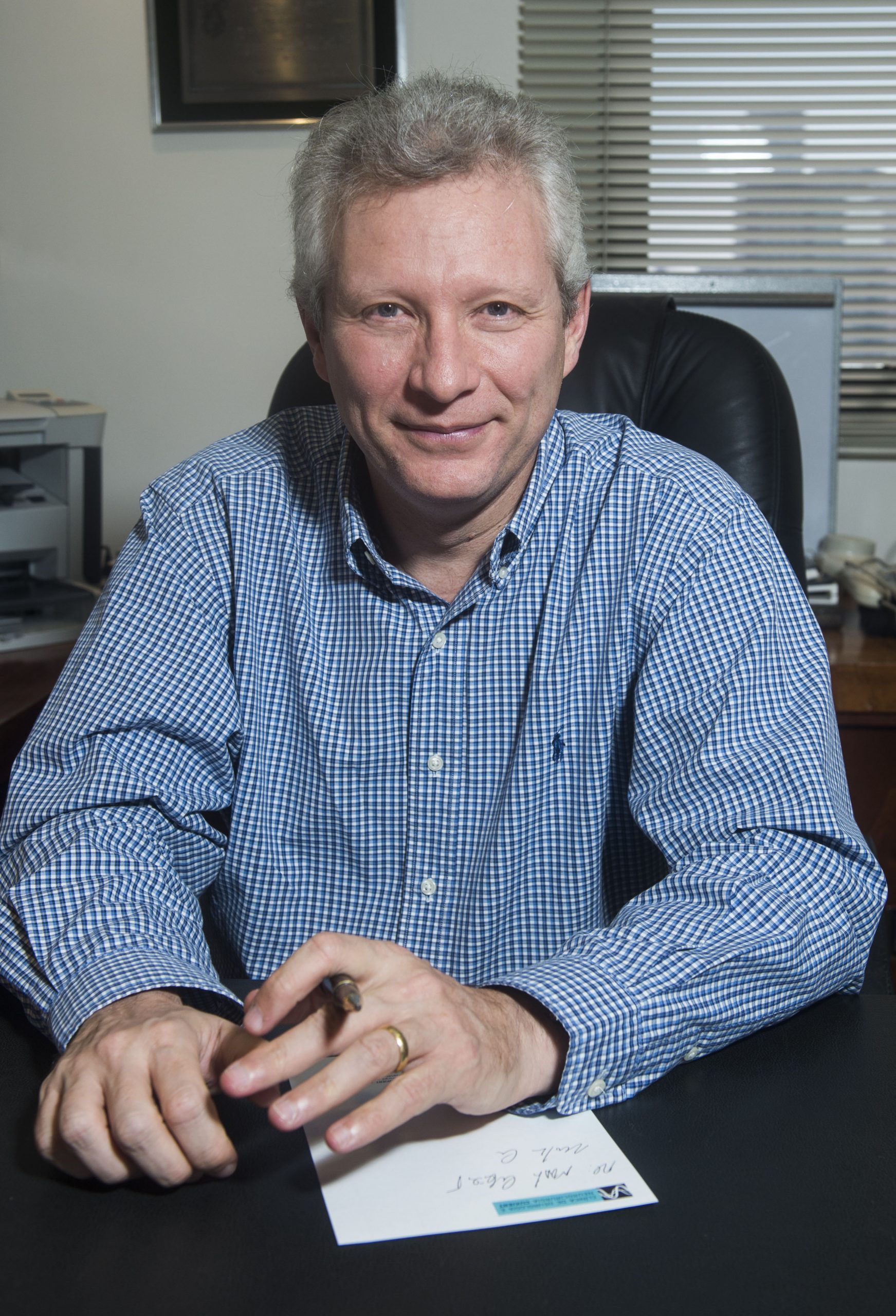
Arthur Cukiert
Arthur Cukiert was born in Santo Andre, Brazil in July 23rd, 1963. He graduated at Sao Paulo University in 1986 and finished his neurosurgical training at the Hospital das Clinicas of Sao Paulo University in 1991. He spent a year at the Montreal Neurologic Institute as a Clinical & Research Fellow. Back in Brazil, he worked at Sao Paulo Hospital das Clinicas, developed the Hospital Brigadeiro neurosurgical service and was a medical assistant at the ABC Faculty of Medicine in Sao Paulo. He received a PhD degree in Neurophysiology in 1996 from the Biological Sciences Institute of the Sao Paulo University and he is a Full Professor in Neurosurgery from the Sao Paulo Medical School at University of Sao Paulo. He is presently the Director of the Sao Paulo Epilepsy Clinic, and Head of its Epilepsy Surgery Program. He is part of the ILAE Pediatric Surgery Task Force, the Epilepsy Surgery Education Taskforce and the Industry Relations Taskforce. He had organized several Epilepsy Surgery Techniques Meetings over the years. He was President of the Brazilian Functional Neurosurgery Society and of the Brazilian Congress of Update in Neurosurgery. He is presently President of the Brazilian Neuromodulation Society and has been serving as a Fiscal Committee member of the Brazilian Neurosurgical Society for the last four years. He presented more than 400 lectures worldwide, attended to 350 meetings, presented 800 abstracts and published 150 peer reviewed papers and 9 books. His activities center on the surgical treatment of refractory epilepsy and pituitary tumors.
Published Books:
1- Neuroendocrinology textbook. A Cukiert e B Liberman (Eds), Editora Lemos, São Paulo, 2002, 638 pp.
2- Medical and surgical treatment of refractory epilepsy. A Cukiert (Ed), Editora Lemos, São Paulo, 2002, 394 pp.
3- Advances in the pathogenesis, diagnosis and treatment of partial epilepsy. A Cukiert, F Cendes, JC da Costa and FGM Naylor (Eds), Arquivos de Neuropsiquiatria, vol 61, suplement 1, 2003, 122 pp.
4- Physiology and pathophysiology of growth hormone. Bernardo Liberman and Arthur Cukiert (Eds), Editora Lemos, São Paulo SP, 2004, 419 pp.
5- Generalized Epilepsies. Arthur Cukiert (Ed), Segmento Pharma Editora, São Paulo SP, 2006, 220 pp.
6- Quality of life in epilepsy. M Albuquerque e A Cukiert (Eds), Editora Alaúde, São Paulo SP, 2007, 350 pp.
7- Neuromodulation. Arthur Cukiert (Editor), Editora Alaúde, São Paulo, Brasil, 488 pp.
8- Functional Neurosurgery, Arthur Cukiert (Editor), Editora Alaude, São Paulo, 776 pp.
9- Operative Techniques in Epilepsy Surgery, Thieme, New York, 2019, 259 pp.
Top Seven Papers:
1- Frameless stereotaxy for surgery of the epilepsies: preliminary experience. Technical note. A. Olivier, I. Germano, A. Cukiert, T. Peters. J Neurosurg 81: 629-633, 1994.
2- Results of surgery in patients with refractory extratemporal epilepsy with normal or non-localizing magnetic resonance findings investigated with subdural grids. A Cukiert, JA Burattini, E Machado, A Sousa, JO Vieira, M Argentoni, C Forster, C Baldauf. Epilepsia 2001; 42:889-894.
3- Extended, one-stage callosal section for treatment of refractory secondarily generalized epilepsy in patients with Lennox-Gastaut and Lennox-like syndromes. Cukiert A, Burattini JA, Mariani PP, Camara RB, Seda L, Baldauf CM, Argentoni M, Baise-Zung C, Forster CR, Mello VA. Epilepsia 2006, 47:371-4.
4- Outcome after corticoamygdalohippocampectomy in patients with refractory temporal lobe epilepsy and mesial temporal sclerosis without preoperative ictal recording. Cukiert A, Burattini JA, Mariani PP, Cukiert CM, Argentoni M, Baise-Zung C, Forster CR, Mello VA. Epilepsia 2006, 47:371-4.
5- Centro-median stimulation yields additional seizure frequency and attention improvement in patients previously submitted to callosotomy. Cukiert A, Cukiert CM, Burattini JA, Mariani PP, Argentoni M, Baise-Zung C, Forster CR, Mello VA. Seizure 2009, 18: 588-592.
6- Long-term outcome after callosotomy or vagus nerve stimulation in consecutive prospective cohorts of children with Lennox-Gastaut or Lennox-like syndrome and non-specific MRI findings. Cukiert A, Cukiert CM, Burattini JA, Lima AM, Forster CR, Baise C, Argentoni-Baldochi M. Seizure 2013, 22:396-400.
7- Seizure outcome after hippocampal deep brain stimulation in patients with refractory temporal lobe epilepsy: A prospective, controlled, randomized, double-blind study. Arthur Cukiert,†Cristine Mella Cukiert, †Jose Augusto Burattini, †Pedro Paulo Mariani, and *Daniela Fontes Bezerra. Epilepsia,58(10):1728–1733,2017.
Arthur Cukiert
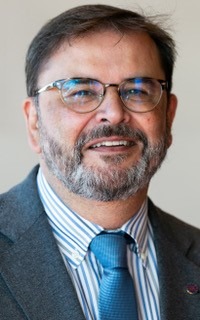
Jose De Andres
Dr Jose De Andrés qualified from the School of Medicine at Valencia University, and is now its Tenured Professor of Anaesthesiology of the Valencia University School of Medicine, also in the General University Hospital in Valencia, Spain, he holds the position of Chairman of Anaesthesia, Critical Care, and of the Multidisciplinary Pain Management Department.
He is involved in ongoing research in pain, and current areas of investigation include the expression of pain and its control through neuromodulation techniques, through neuroimaging markers and genomic expression. In addition, the computerized prediction designs of programming models and design of neuromodulation systems. He is on the editorial boards of several national and international journals and Vice Chairman of examining board. European Society of Regional Anesthesia and Pain Therapy (ESRA) to obtain the European Diploma of Chronic Pain Management (EDPM). Committee Member of “Society Liaison and Advocacy” International Neuromodulation Society (INS), since 2016 and continuing.
Jose De Andres
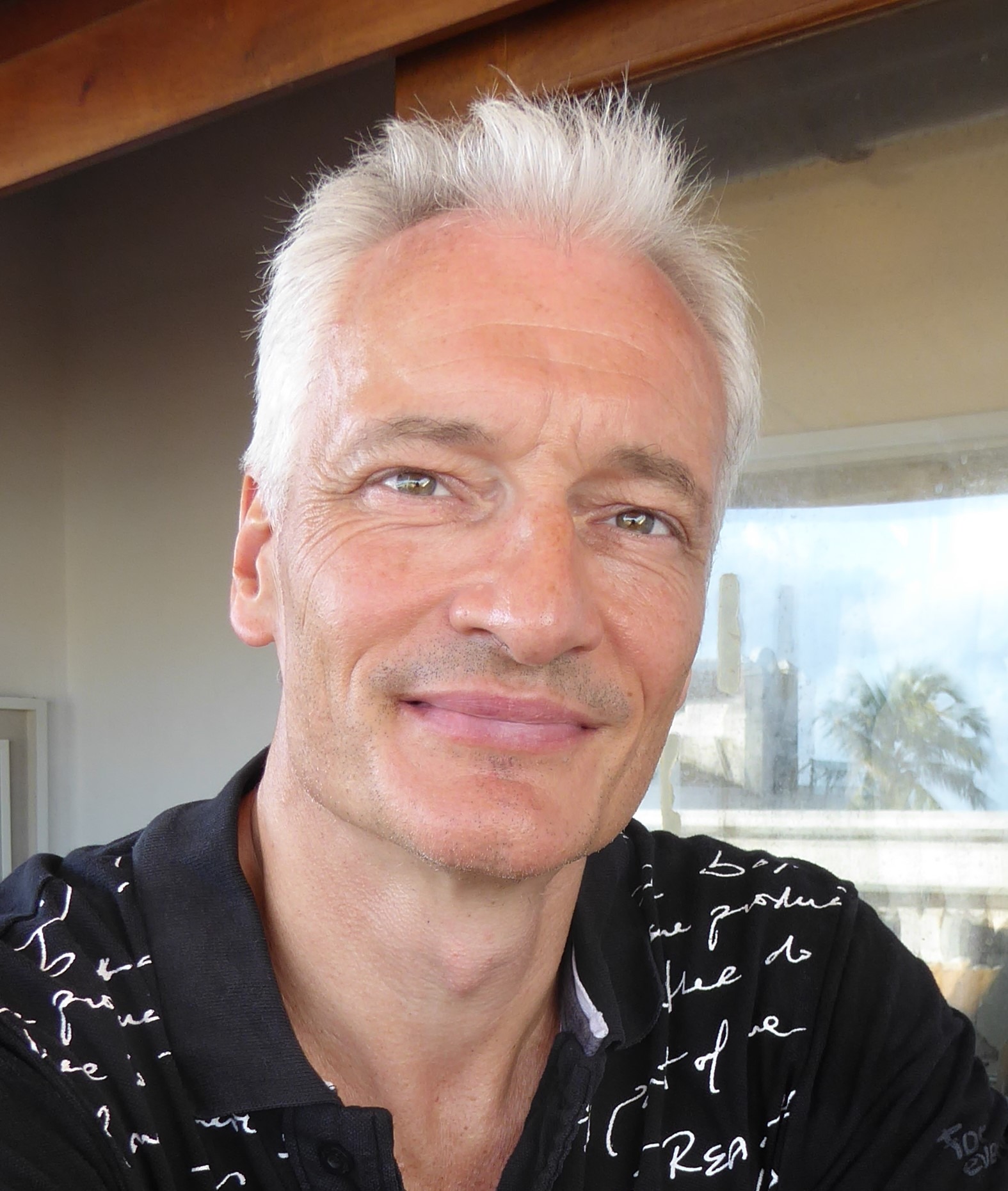
Dirk De Ridder
Dirk De Ridder, MD, PhD, is professor of Neurosurgery at the Dunedin School of Medicine, University of Otago in New Zealand.
His main research interest is the understanding and treatment of phantom perceptions (tinnitus, pain), especially by use of functional imaging navigated non-invasive (TMS, tDCS, tACS, tRNS, LORETA neurofeedback) and invasive (implants) neuromodulation techniques.
The approach to unravel phantom percepts is by developing an understanding of commonalities in different diseases such as in thalamocortical dysrhythmias (pain, tinnitus, Parkinson disease, depression, slow wave epilepsy) and reward deficiency syndromes (addiction, OCD, Personality disorders, …)
He has developed “burst” and “noise” stimulation as novel stimulation designs for implants, and is currently working on multifocal or network stimulation, as well as reconditioning stimulation.
Dirk De Ridder
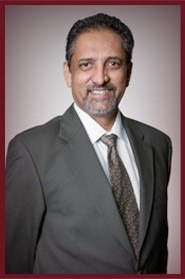
Sudhir Diwan, MD, FIPP, DABIPP
President, Advanced Spine on Park Avenue, New YorkDr. Sudhir Diwan, nationally and internationally recognized as a key opinion leader in the field of pain management, is the President, Advanced Spine on Park Avenue, New York, and Associate Clinical Professor at Albert Einstein College of Medicine, New York. Dr. Diwan was the former Director of the Tri-Institutional Pain Fellowship Program and Division of Pain Medicine at Ivy League Weill Medical College of Cornell University for more than a decade, where he also served as associate professor of clinical anesthesiology, and on the faculty at the world renowned New York Presbyterian Hospital.
Dr. Diwan has published extensively in prestigious peer-reviewed medical journals and medical books on a variety of pain management topics. He is on the Editorial Board for the Pain Physician - an official journal of the American Society of Pain Physicians (ASIPP) since 2008, and Pain Practice – official journal of World Institute of Pain (WIP) since 2009. Dr. Diwan is the Examiner for the Certification Board for American Board of Interventional Pain Physicians (ABIPP) and Fellow of Interventional Pain Practice (FIPP) offered by the World Institute of Pain. Dr. Diwan is Co-Editor for Intrathecal Drug Delivery for Pain and Spasticity, Vol 2, Timothy Deer, Series Editor, Elsevier-Saunders 2012, Co-Editor for Diwan-Staats’s Atlas of Pain Medicine Procedures, McGraw Hill Education 2015, and Advanced Procedures for Pain Management, A step-by-step Atlas, Springer US, 2018
Dr. Diwan is recipient of many accolades including Lifetime Achievements award by American Society of Pain and Neuroscience (2020), League of Presidents Award by ASIPP (2020), Distinguished Service award by ASIPP (2017), Clinical excellence award by WVSIPP (2013), and Outstanding Contribution to Pain Management award by NYSIPP (2013), Lifetime Achievements Award by ASPN (2020), Raj Excellence Award by ASIPP (2021), and Distinguished Service Award by ESRA-Spain (2022)
In addition to his busy pain management practice in New York City, Dr. Diwan lectures extensively and interacts regularly with experts in the field of pain medicine nationally and internationally. He has been guest speaker for many noteworthy organizations including the ASIPP, ASPN, WIP, NANS, INS, numerous Regional and State Societies Pain Meetings, and International Pain Societies and Congresses. Currently he is Executive Director of NYSIPP and Course Chairman of the Annual NY/NJ Pain Medicine Symposium. He is on executive boards of ASIPP and ASPN, and Director Emeritus of ASIPP.
Dr. Sudhir Diwan, is the President, Advanced Spine and Associate Clinical Professor at Albert Einstein College of Medicine, New York. He was the former Director of the Tri-Institutional Pain Fellowship Program and Division of Pain Medicine at Weill Medical College (Cornell University) for over a decade, where he also served as associate professor of clinical anesthesiology, and on the faculty at the New York Presbyterian Hospital.
Dr. Diwan has published extensively in prestigious peer-reviewed medical journals and medical books on a variety of pain management topics. He is on the Editorial Board for the Pain Physician and Pain Practice. He is the Examiner for the Certification Board for American Board of Interventional Pain Physicians (ABIPP) and Fellow of Interventional Pain Practice (FIPP)
Dr. Diwan is the recipient of many accolades including Lifetime Achievements award by the American Society of Pain and Neuroscience, League of Presidents Award and Distinguished Service award by ASIPP, Clinical excellence award by WVSIPP, and Outstanding Contribution to Pain Management award by NYSIPP, Lifetime Achievements Award by ASPN, Raj Excellence Award by ASIPP, and Distinguished Service Award by ESRA-Spain.
Sudhir Diwan, MD, FIPP, DABIPP
President, Advanced Spine on Park Avenue, New York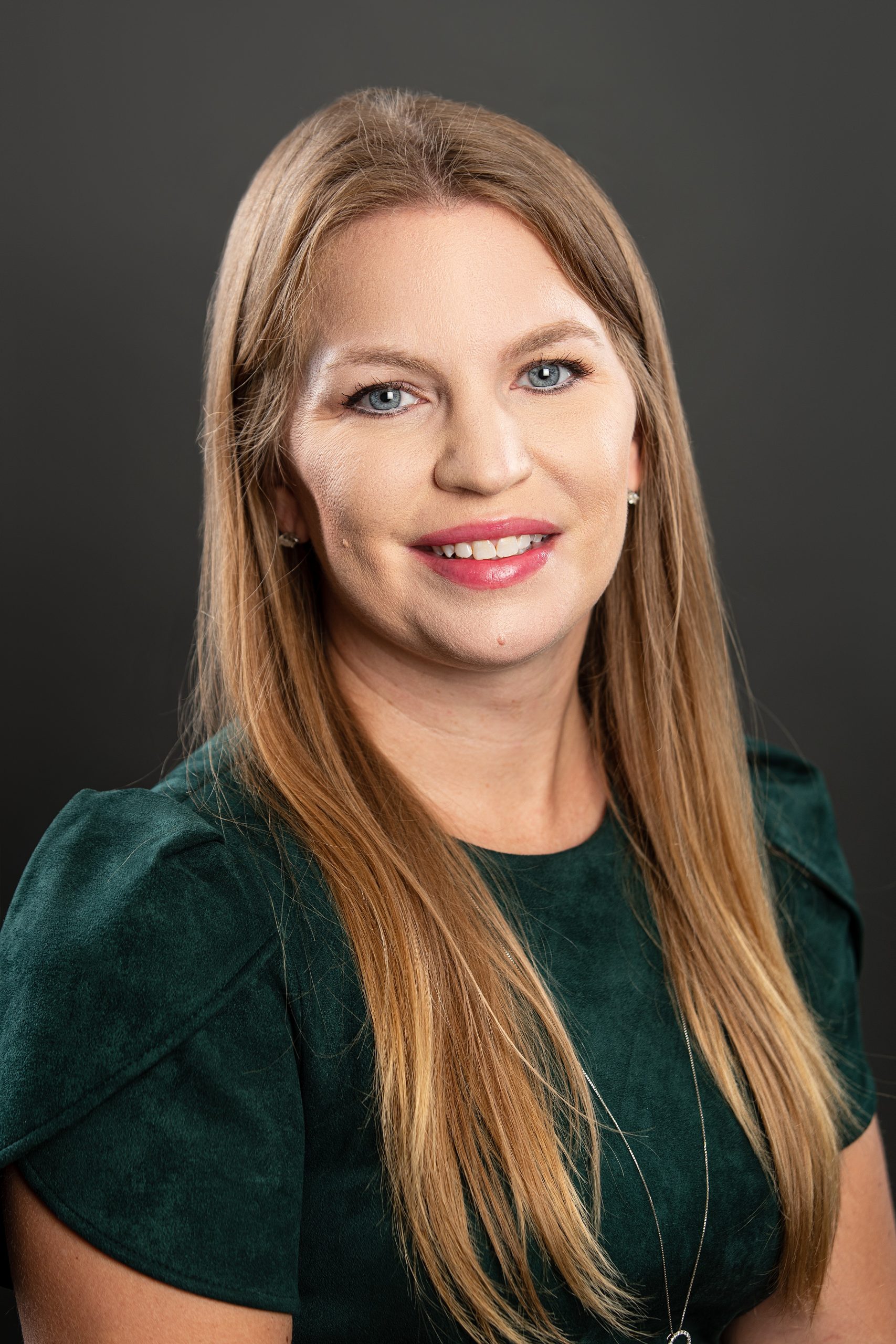
Heather Pinckard-Dover
Dr. Pinckard-Dover is an Assistant Professor at Marshall University in Huntington, WV. She specializes in stereotactic and functional neurosurgery. She completed her residency training at University of Arkansas for Medical Sciences in Little Rock, AR. She went on to complete a Stereotactic and Functional Fellowship at the University of Florida in Gainesville, FL.
Heather Pinckard-Dover
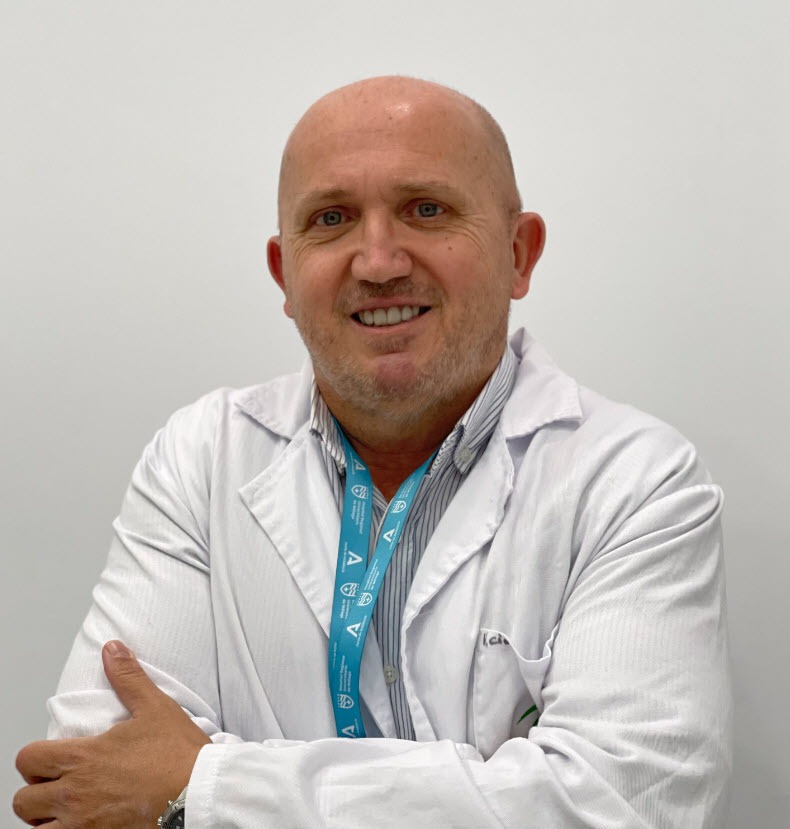
Mariano Fernández Baena
Senior Consultant at the Pain Unit of H.R.U. de Málaga (Málaga-Spain) since October 2016.NAME: Mariano Jesús Fernández Baena.
PROFESSION: Medical Doctor, Specialist in Anesthesiology and Reanimation.
Senior Registrar at the Service of Anesthesiology, Reanimation and Pain Management of the University Hospital H.R.U. Carlos Haya (Málaga-Spain) since January 1997.
CURRENT SITUATION: Senior Consultant at the Pain Unit of H.R.U. de Málaga (Málaga-Spain) since October 2016.
ACADEMIC EDUCATION / DEGREE.
1. Degree of Medicine and Surgery from the University of Málaga, courses 1983-1989.
2. Medical Doctor Degree from the University of Málaga with a rating of ``Cum Laude``. Málaga, October 1996..
3. Specialist in ANESTHESIOLOGY AND REANIMATION (MIR program), 1993-1996 in the H.R.U. Carlos Haya (Málaga-Spain) (Andalusian Health Service).
4. Master´s degree in Clinical and Basic Aspects of Pain from University of Cantabria and University Rey Juan Carlos. Madrid, July 2016.
5. Member of the Board of the Spanish Pain Society, February 2022.
Mariano Fernández Baena
Senior Consultant at the Pain Unit of H.R.U. de Málaga (Málaga-Spain) since October 2016.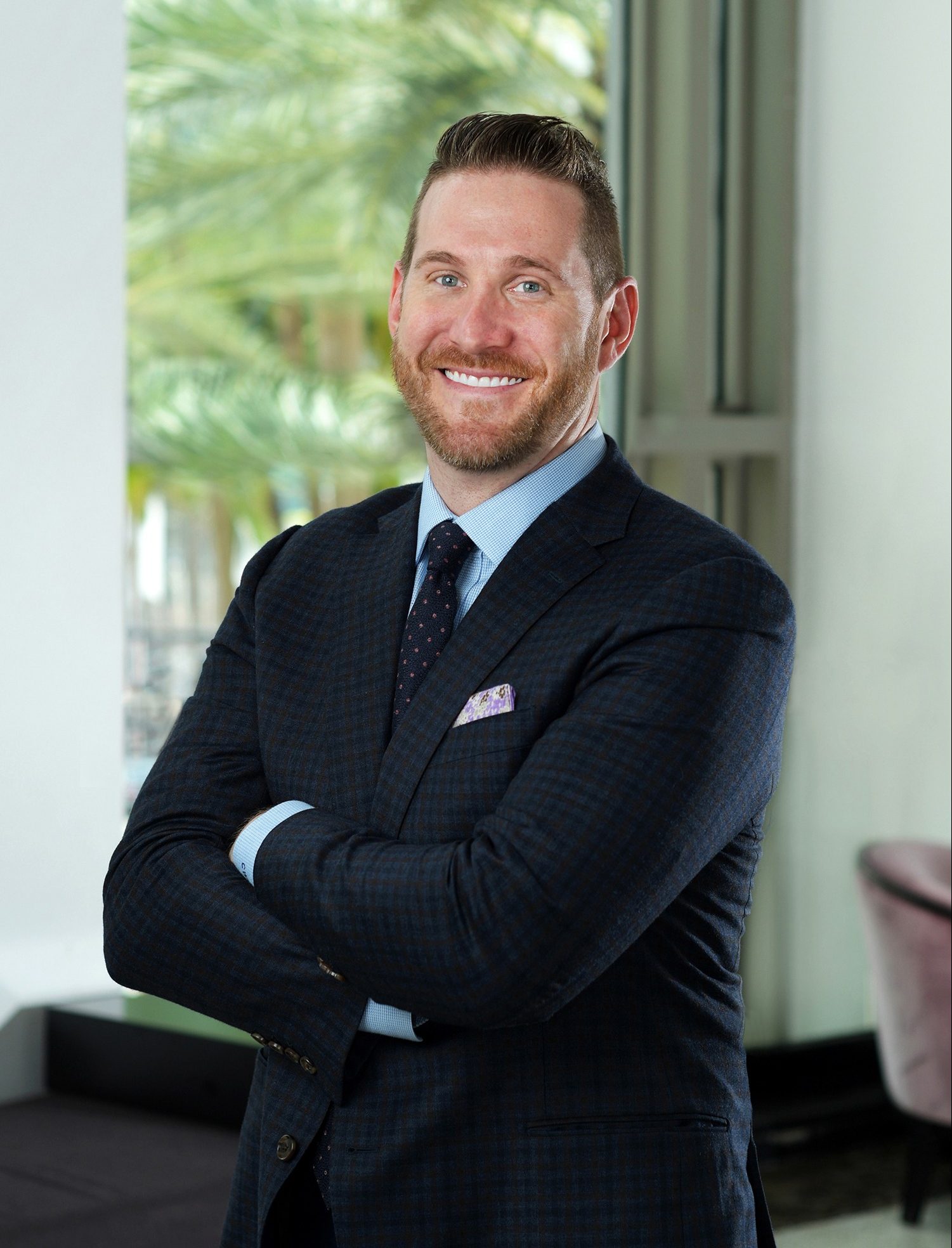
Corey Hunter
Corey W. Hunter, M.D. is an interventional pain management physician practicing in New York City, holding board certifications in Physical Medicine & Rehabilitation and Pain Medicine.
Dr. Hunter earned his medical degree from Drexel University College of Medicine. Thereafter, he completed a residency in PM&R at New York University followed by a Pain Medicine fellowship at the Weill Cornell Medical Center. Dr. Hunter went on to found the Ainsworth Institute of Pain Management in New York City where he serves as the Executive Director. In addition, he holds an appointment as Assistant Clinical Professor in PM&R at the Icahn School of Medicine at Mount Sinai Medical Center.
Prior to attending medical school, Dr. Hunter worked as a research assistant at the Miami Project to Cure Paralysis investigating embryonic stem cells to treat paralysis, Parkinson’s disease and chronic pain. He continued his research in medical school studying stromal stem cells (now known as mesenchymal) to treat paralysis – his work was amongst the earliest research on this particular cell line, which is now the mainstay of regenerative medicine.
Dr. Hunter continues to be active in research, serving as the principle investigator on a number of clinical trials on emerging neuromodulation technologies and regenerative medicine. He has a keen interest in teaching and is well-published on a wide variety of topics that includes DRG Stimulation, pelvic pain, regenerative medicine, CRPS, amputee pain, advanced spinal cord stimulation techniques, minimally invasive spine procedures, and targeted drug delivery.
Corey Hunter
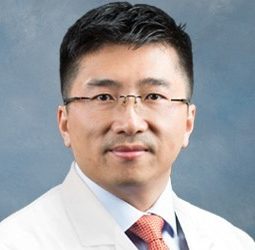
Sean Li
Sean Li, M.D. specializes in interventional pain management. His clinical interest is in neuromodulation therapy such as spinal cord stimulation, high-frequency stimulation, dorsal root ganglion stimulation and peripheral nerve stimulation.
Prior to joining National Spine & Pain Centers, Dr. Li served as the medical director of Premier Pain Centers LLC. In addition to his work at National Spine & Pain Centers, Dr. Li continues to serve as an attending physician at Riverview Medical Center in Red Bank, NJ. He has published numerous professional articles and written textbook chapters on the topic of pain and is actively involved in clinical research that will help advance the field of interventional pain medicine.
Dr. Li serves on the Ethics Committee at the American Society of Interventional Pain Physicians, the Education Committee and Young Neuromodulators Committee at the International Neuromodulation Committee, on the Mentoring Committee for the North American Neuromodulation Society, and is secretary of the New Jersey Society of Interventional Pain Physicians.
Sean Li
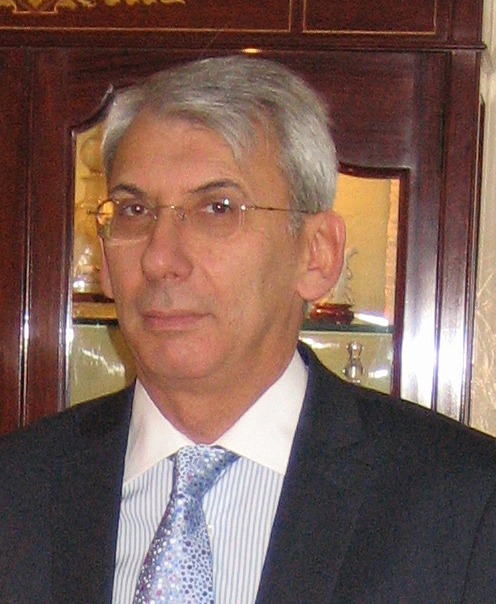
Jose A. López
Dr. Jose A. Lopez Lopez is a 69-years old neurosurgeon involved in pain management since 1979. Three years later obtained his PhD with the Thesis: “Beta-Endorphin and Thalamic Surgery for Pain”. Member of the Spanish Pain Society, the IASP, the Spanish Society of Neuromodulation, the INS, as well as other societies in neurosurgery. Specially interested in chronic non-malignant pain through Neuromodulation techniques. Has been professor of courses on Neuromodulation from both beginners and advanced users in Cadiz. Past Head of the Special Interest Group on Neuromodulation of the Spanish Pain Society. Past Secretary of the Executive Committee of the SIG on Neuromodulation of the IASP. Recently retired at the “Puerta del Mar” Hospital as neurosurgeon and physician of the pain clinic. Past professor of Neurosurgery at the Faculty of Medicine of the University of Cadiz.
Jose A. López
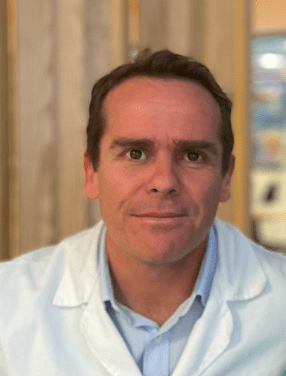
Agustin Mendiola
Dr. A. Agustin Mendiola (MD, PhD, FIPP, CIPS, EDPM) is the Puerta de Hierro Hospital Pain Coordinator, I am working with stimulation systems since 10y ago. I usually make about 50-60 implants per year. Currently I am an opinion leader in Spain and take part in several international neuromodulation and pain treatment congress.
In the other hand, I have a great experience in cadaver work-shop and ``person to person” days in relation to DRG device implants
Agustin Mendiola
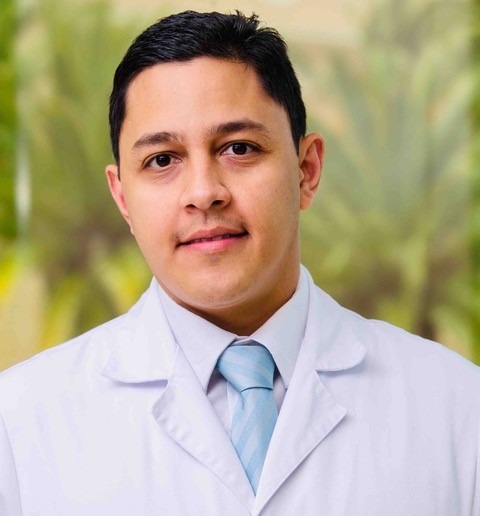
Antonio Ojeda
Dr. Antonio Ojeda is an anesthesiologist and pain physician at Hospital Clinic in Barcelona, Spain. He is an expert in interventional pain management techniques and throughout his professional career he has combined clinical practice with teaching and research, actively participating in the training of residents at the Hospital Clinic in Barcelona. He has published 26 articles in an indexed medical journal, presented more than 40 communications in national and international congresses and collaborated in various books on his specialty. He is a member of the board of directors of the Spanish Pain Society (SED) where he is part of the Neuromodulation Special Interest Group and has also been coordinator of the Neuromodulation Special Interest Group of the Catalan Pain Society (SCD). He is a Certified Fellow in Interventional Pain Practice (FIPP) by the World Institute of Pain (WIP) and an active member of the Neuromodulation International (INS) and the International Association for the Study of Pain (IASP).
Antonio Ojeda
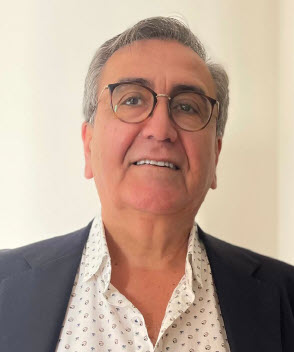
Antonio Pajuelo
University of Seville (Faculty of Medicine) Fatima Hospital Hospital Virgen del Rocio Seville SpainDr. Pajuelo is Associate Professor at the University of Seville (School of Medicine) and Director of the Department of Pain Treatment at the Fatima Hospital in Seville. During the period from 2008 to 2018, he was Director of the Pain Treatment Unit of the Anesthesiology Department of the Virgen del Rocio Hospital (Seville). Past President of the Spanish Chapter of the INS from 2015 to 2019. He is a specialist and pioneer of dorsal root ganglion neurostimulation in Spain and was part of the group of experts worldwide in this type of stimulation. Currently, his research activity focuses on therapies for the treatment of chronic low back pain, for which he is Coordinator in Spain of the Low Back Pain group of the Spanish Society of Pain and in another facet he is an expert in the treatment of various pathologies. through the use of vagus nerve stimulation.
Antonio Pajuelo
University of Seville (Faculty of Medicine) Fatima Hospital Hospital Virgen del Rocio Seville Spain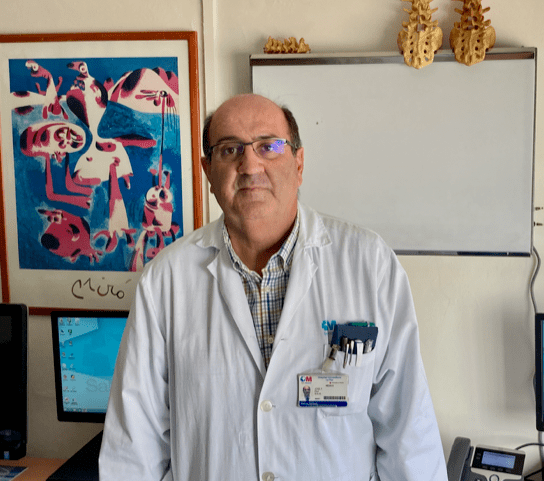
Pepe Paz
Family Name: Paz Solís.
First Name: José Francisco.
? Degree in Medicine & Surgery (MD) (1978-1984).
? Speciality in Neurosurgery (1990-currently).
? Functional Surgery & Pain Speciality.
Work Experience
? Associate Speciality (STAFF) in Hospital La Paz. Autonomous University. Madrid.
? Clinical Consultant Degree.
? Section Chief of Functional Neurosurgery (in charge).
Publications
? In Functional, Pain clinic and Neuromodulation, I have published 21 issues.
Presentations in Congresses
? In the specific area of Neuromodulation: Domestic (96) and international (68).
Educational Courses (given)
? I have been chairman in 8 courses on neuropathic pain, held in Spain. I have
collaborated as teacher in Neuromodulation Cadaver Courses (4) held in
Budapest (Hungary), other cadaver courses (12) held in Spain, and Suturing
techniques for neuromodulation implanters (8) held in Spain.
? I have given several domestic courses on Neuromodulation in different Spanish
cities.
Scientific Association
? Member of Spanish Functional and Stereotactic Society (SENFE).
? Member of European Society of Stereotactic Functional Neurosurgery (ESSFN)
? Member of the Spanish Pain Society (SED).
o Currently member of the Neuromodulation Working Group of SED.
? Member of Spanish Neuromodulation Society´s board in 2007-2008.
o Secretary of Spanish Neuromodulation Society in 2008-2016.
o Vicepresident of INS (Spanish chapter) from 2018-nowdays.
Participation in the Hospital´s Advisory Committee
Hospital without Pain
Pepe Paz
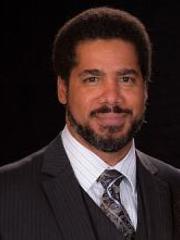
Lawrence Poree
Dr. Poree is director of Neuromodulation services at the UCSF PMC and focuses his research and clinical activities on neuromodulation therapies for pain management. He obtained his undergraduate degree in pharmacology from UCSB followed by an MPH and PhD in toxicology and environmental health from UCB. He completed his postdoctoral training at Johns Hopkins in Biomedical engineering and then returned to California for a medical degree and residency training in anesthesia at Stanford University. After completing his pain fellowship at UCSF he started a pain practice in Santa Cruz, CA during which time he engaged in several clinical trials. He returned to UCSF in 2015 to head the neuromodulation program. He has served on the boards of several pain societies and is currently sits on the board of directors for the International neuromodulation society and is vice president of the Institute of Neuromodulation.
Lawrence Poree
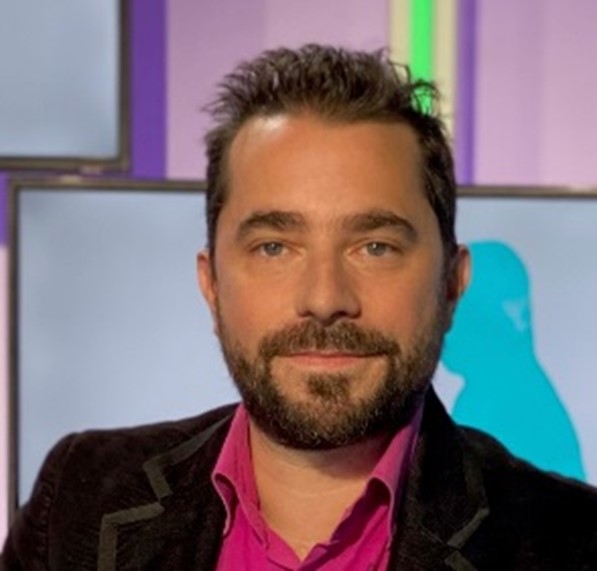
Philippe Rigoard
Prof. Philippe Rigoard holds the position of Professor of Neurosurgery at the University of Poitiers where he serves as Chair of the department of Spine Surgery & Neuromodulation at Poitiers University Hospital, France.
He is an Anatomy conference reader at the Human Morphology Institute, a researcher at Pprime CNRS (Centre National de la Recherche Scientifique) and the director of PRISMATICS Lab (Predictive Research In Spine/Neuromodulation Management And Thoracic Innovation/Cardiac Surgery) in Poitiers.
His main research interests are neuromodulation and spine biomechanics. Prof. Rigoard’s research focuses on the development of neuromodulation technologies, computerized interfaces for multidimensional objectives and quantitative pain assessment to support AI-based predictive medicine and patient pathway optimization.
Prof. Rigoard has also published 219 articles, with >117 articles in peer-reviewed journals indexed in PubMed, an H-Index of >22 and i-10>43 (Google Scholar), several book chapters, has lectured at more than 300 conferences and symposia worldwide and edited an Atlas of Anatomy of the Peripheral Nerves (Springer), including recent neuromodulation techniques available in the expert version.
Philippe Rigoard
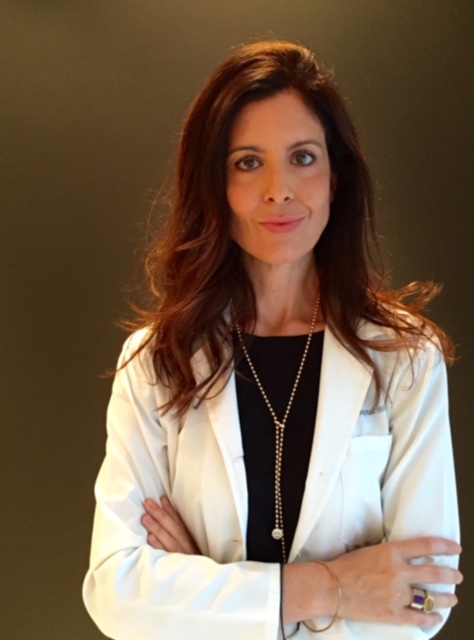
Gloria Villalba
Dr Gloria Villalba, Md, PhD
Neurosurgeon
Neurosurgical Service coordinator in Hospital del Mar ( Barcelona, Spain)
Medicine Professor (Pompeu Fabra University)
Field of interest: craneophacial pain , neuromodulation
Gloria Villalba
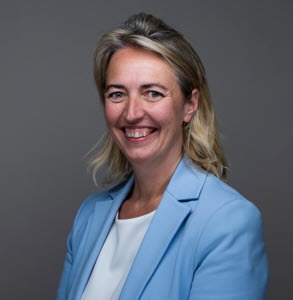
Kristl Vonck
Kristl Vonck is Head of the Department ‘Head and Skin’ at Ghent University in Belgium. She was trained at Ghent University in Belgium, Yale University School of Medicine, New Haven, Connecticut, USA and the University of Stellenbosch, South Africa. She is a fellow of the EAN and member of the EU Joint Task Force of the International League Against Epilepsy. She is a founding member of the international Neuromodulation Task Force for COVID-19. Her research interests include epilepsy, vagus nerve stimulation and other neuromodulation techniques, bioelectronic medicine and neurophysiological home-monitoring of neurological disorders. In the translational research setting of the 4Brain Research team at Ghent University, her team investigates the mechanism of action, efficacy and side effects of several neurostimulation modalities. Both in animals and patients, crucial questions are investigated for the application of neurostimulation as a valuable treatment option for neurological disorders: stimulation parameters, open and closed loop neurostimulation applications, seizure detection and prediction algorithms, invasive versus non-invasive neurostimulation. Proof-of-concept and early innovative techniques for neurological monitoring@home are validated at the excellence Center for Neurofysiological Monitoring (CNM) of Ghent University Hospital before being investigated in a home environment. Kristl Vonck has published widely in international peer-reviewed journals >150 papers), has authored seven book chapters and has given >200 international presentations.
